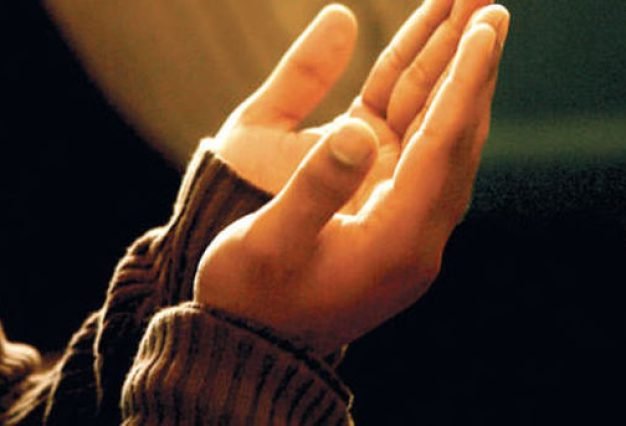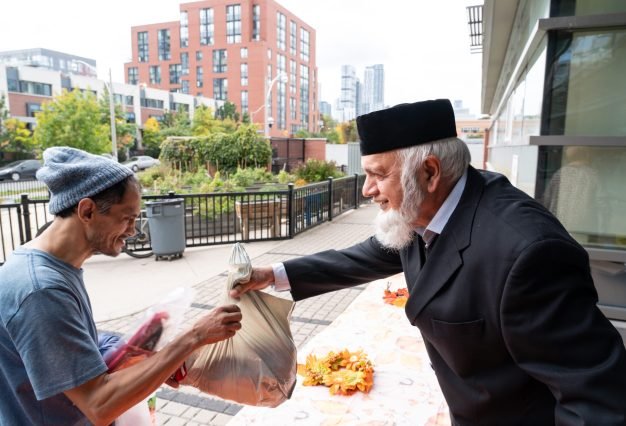Answered by Shaykh Yūsuf Badāt
Question:
Do grandchildren have inheritance rights? For example, if a person leaves inheritance for his children and before it is divided one child dies and leaves children behind, will those children be entitled to get a share from their grandfather’s inheritance?
Answer:
In the Name of God, Most Merciful, Most Kind
Thank you/ Jazāk Allāh Khayr for your question.
In response to your concern, yes in general, grandchildren are entitled to inheritance. – (See: Mukhtaṣar Al-Qudūrī, Al-Mawsūʿat Al-Fiqhīyyah)
It is worthy to note that islamically, shares of inheritance depend on who is alive or not. This is a case by case situation. In some scenarios, grandchildren may be entitled while in other situations they may not, depending on who remains alive at the time of a person’s demise. – (See: Mukhtaṣar Al-Qudūrī, Al-Mawsūʿat Al-Fiqhīyyah)
In the scenario you have described, a son has passed away who was entitled to a share from his father’s estate, which was not distributed to him. In such a situation, the son’s allocated portion will be given to his heirs now, meaning the rightful portion of the son is now given to the grandchildren (his children) and anyone else who may be an heir to the deceased. Meaning, this son is entitled to his father’s share in the grandfather’s estate. It should also be noted that this share to which this person is entitled to does not represent his share in his grandfather’s estate. Rather, it is his father’s share of his own father’s estate. – (See: Al-Mawsūʿat Al-Fiqhīyyah)
Ibn ‘Abbās (may God be pleased with him) said, “The Prophet Muḥammad (peace and blessings upon him) said, “Distribute wealth among those who are entitled to shares of inheritance, according to the Book of Allāh, then whatever is left over goes to the nearest male relative.’” – (Ibn Mājah)
Imam Mālik (may God’s mercy be with him) declared, “The generally agreed upon way of doing things among us and what I have seen the people of knowledge doing in our city about the fixed shares of inheritance of children from the mother or father when one or other of them dies is that if they leave male and female children, the male takes the portion of two females. If there are only females, and there are more than two, they get two thirds of what is left between them. If there is only one, she gets a half. If someone shares with the children, who has a fixed share and there are males among them, the reckoner begins with the ones with fixed shares. What remains after that is divided among the children according to their inheritance. “When there are no children, grandchildren through sons have the same position as children, so that grandsons are like sons and grand-daughters are like daughters. They inherit as they inherit and they overshadow as they overshadow. If there are both children and grandchildren through sons, and there is a male among the children, then the grandchildren through sons do not share in the inheritance with him. “If there is no surviving male among the children, and there are two or more daughters, the granddaughters through a son do not share in the inheritance with them unless there is a male who is in the same position as them in relation to the deceased, or further than them. His presence gives access to whatever is left over, if any, to whoever is in his position and whoever is above him of the granddaughters through sons. If something is left over, they divide it among them, and the male takes the portion of two females. If nothing is left over, they have nothing. “If the only descendant is a daughter, she takes half, and if there are one or more grand-daughters through a son who are in the same position to the deceased, they share a sixth. If there is a male in the same position as the granddaughters through a son in relation to the deceased, they have no share and no sixth .”If there is a surplus after the allotting of shares to the people with fixed shares, the surplus goes to the male and whoever is in his position and whoever is above him of the female descendants through sons. The male has the share of two females. The one who is more distant in relationship than grandchildren through sons has nothing. If there is no surplus, they have nothing. That is because Allah, the Blessed, the Exalted, said in His Book in 4:10, “Allah charges you about your children that the male has the like of the portion of two females. If there are more than two women they have two thirds of what is left. If there is one, she has a half.”” – (Muwaṭṭa Imam Mālik)
And Allāh Knows Best




